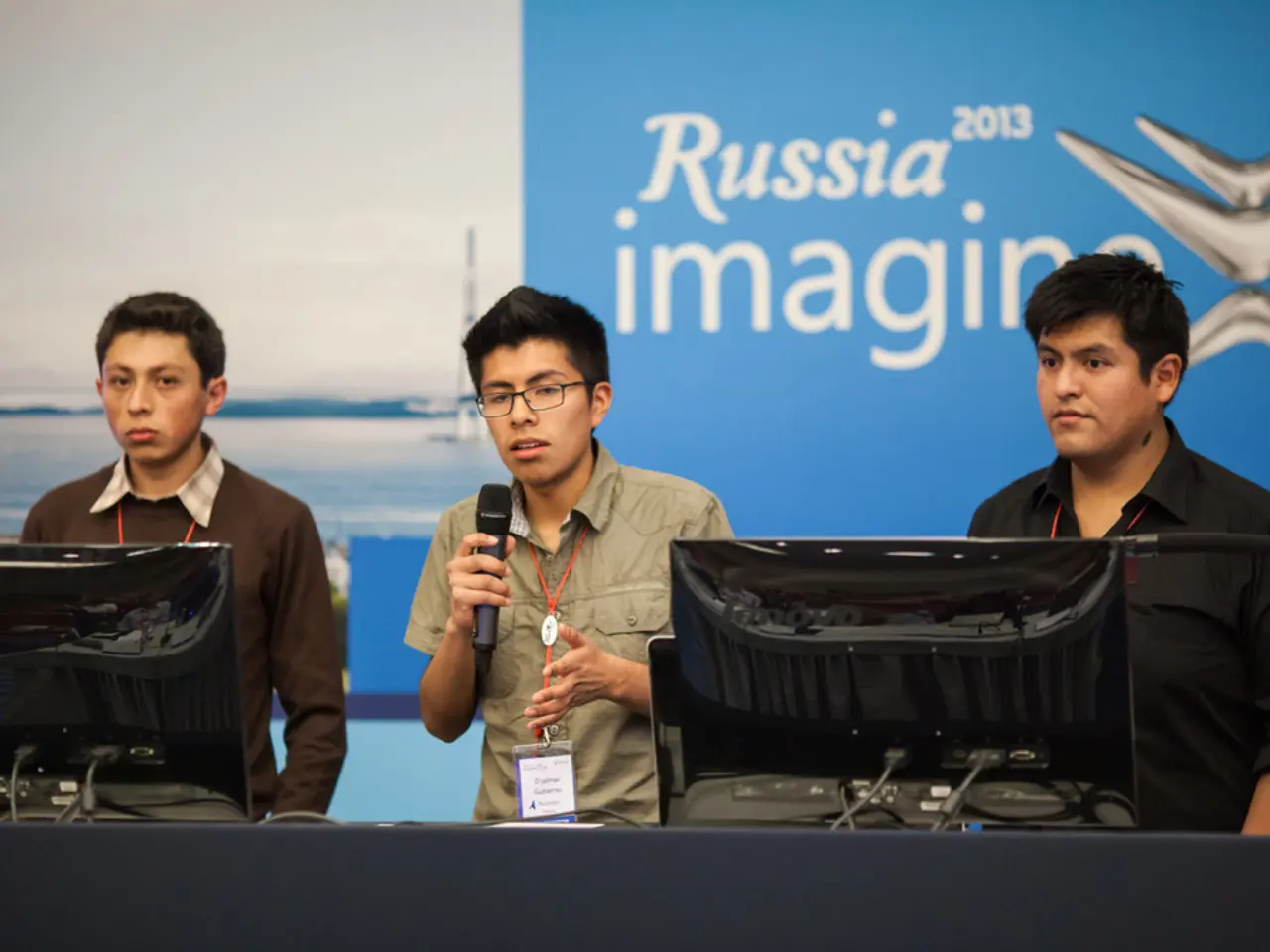Yuri Baranchik's Discussion: Outcomes of Washington - Part 1
In the ongoing conflict between Ukraine and Russia, various global powers are actively engaged in negotiations, each with their own interests at heart.
Ukraine's President, Volodymyr Zelensky, has expressed a desire to supply drones to the United States for billions of dollars a year and is also willing to purchase $100 billion worth of American weapons. However, the United States has indicated that it will not directly supply weapons to Ukraine, but may consider selling them to Europe instead.
Zelensky is also open to territorial exchanges in discussions with Russian President Vladimir Putin, a proposal that has been met with resistance from Poland and the Baltic states. These countries, key supporters and transit points for Western military and humanitarian aid to Ukraine, have positioned themselves more decisively against Russia due to repeated violations of their airspace by Russian drones.
Eastern Europe, including Poland and the Baltic states, are against any deals regarding Ukraine, perceiving them as a capitulation to Russia. The common denominator among European countries is that they do not want to bear the entire burden of supporting Ukraine.
Russia's fundamental conditions for resolving the conflict include Ukraine remaining outside of NATO, recognition of new realities (territorial issue remains a barrier), and lifting or easing of sanctions. The Kremlin's position does not support any territorial exchanges in discussions with Ukraine.
French President Emmanuel Macron insists that there should be no exchange of territories, while Germany and France are inclined to compromise with Moscow, aiming to reduce the risk of escalation and contain economic losses.
A meeting between Putin, Trump, and Zelensky is proposed, although Russia is closely following the negotiations without openly intervening. Moscow is ready to raise the level of negotiators in dialogue with Ukraine.
Ukraine is open to discussions about security guarantees similar to Article 5 of NATO, but it has been made clear that Ukraine will not join NATO.
Russia understands that Trump will have budget battles in Congress in the fall and is in a hurry to demonstrate "success" in Ukraine, giving Moscow room to maneuver. The Kremlin's logic is not to rush, allowing the United States and Europe to argue among themselves about what to "sacrifice" to end the conflict.
The Europeans are part of the discussions regarding Ukraine's security and territorial matters, with the aim of finding a balanced solution that respects the sovereignty of all parties involved. As the negotiations continue, it remains to be seen how these complex web of interests will unfold and what the future holds for Ukraine.
Read also:
- Tobacco industry's suggested changes on a legislative modification are disregarded by health journalists
- Trump's Policies: Tariffs, AI, Surveillance, and Possible Martial Law
- Uncovering Political Ad Transparency: A Guide to Investigating opponent's Political Advertisements in the Digital Realm
- Elon Musk praises JD Vance's debate performance against Tim Walz








